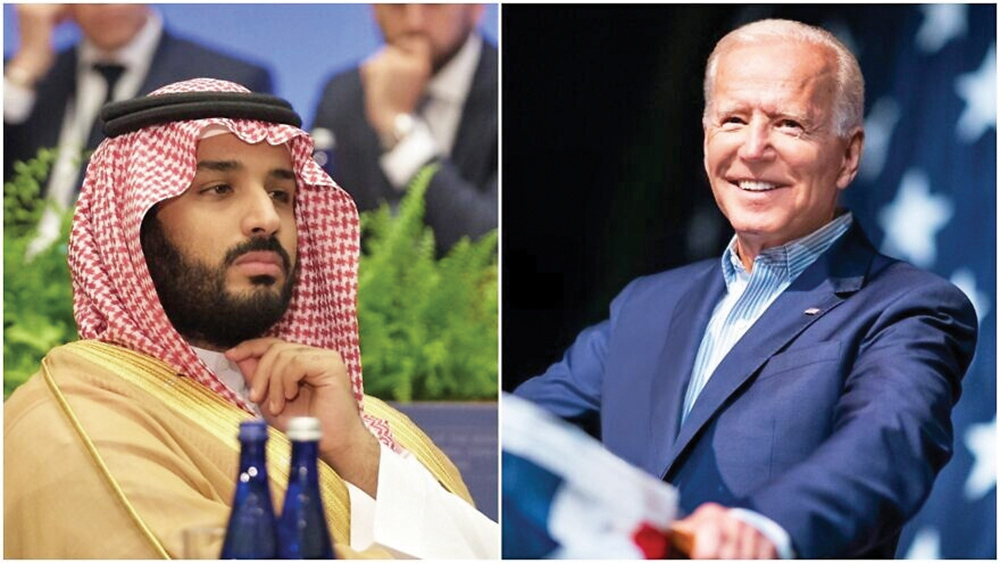White House downplays claim first reported in Wall Street Journal that deal is imminent.

(Source: U.S. State Department/Joe Biden via Facebook)
The United States and Saudi Arabia have reportedly agreed on the “broad contour” of a deal for the kingdom to recognize Israel, according to a Wall Street Journal report on Wednesday, August 9.
U.S. officials said it would be “the most momentous Middle East peace deal in a generation,” the Journal reported. They cautioned, however, that the deal still faces long odds.
Efforts accelerated with a visit by U.S. National Security Advisor Jake Sullivan to Saudi Arabia on May 7 where he met with Mohammed bin Salman, the kingdom’s crown prince (known as MBS).
U.S. officials said it would take nine to 12 months to work out the finer details of an agreement and negotiators are already discussing specifics, including American help for a Saudi civilian nuclear program, along with security guarantees and concessions for Palestinians.
Washington in return is asking Riyadh to place limits on its burgeoning ties with China, with the U.S. likely to request assurances that the Saudis wouldn’t let China build military bases on their territory.
Limits on Saudi use of Chinese technology and a commitment to use U.S. currency and not the Chinese yuan may also be part of the negotiations.
Israeli National Security Adviser Tzachi Hanegbi said negotiators have not broached specifics with Israeli leaders. One stumbling block may be what concessions to the Palestinians the U.S. and Saudi Arabia expect Jerusalem to make.
Prime Minister Benjamin Netanyahu said in an interview with Bloomberg Television broadcast last week that it’s not as big an issue as people think.
He expressed confidence that his government could achieve some form of normalization with Saudi Arabia in the coming months.
“I think that we are about to witness a pivot of history,” Netanyahu told Bloomberg’s Francine Lacqua. “First, there is an economic corridor of energy, transport and communications that naturally goes through our geography from Asia through the Arabian Peninsula to Europe.
“We are going to realize that,” vowed the prime minister, adding, “Saudi Arabia is one of the exceptional things that tells you why I’m very optimistic about Israel.”
“If there is a political will, there will be a political way to achieve normalization and formal peace between Israel and Saudi Arabia. That has enormous economic consequences for the investors and if they have to bet on it right now, I’d bet on it,” Netanyahu said.
White House Denies Agreement On Outline for Deal
The White House, also on Wednesday, downplayed claims that Riyadh had agreed to the “broad contours” of a normalization deal with Israel.
“There’s no agreed framework to codify the normalization or any of the other security considerations that we and our friends have in the region,” U.S. National Security Council spokesman John Kirby told journalists on a press call.
On Tuesday, Israeli Foreign Minister Eli Cohen published an op-ed in the Journal in which he argued that U.S. defense guarantees under an Israeli-Saudi normalization agreement would make Gulf states’ nuclear ambitions “unnecessary.”
The Americans would be able to provide protection against Iranian aggression in the region, said Cohen, adding: “[A] defense pledge could reassure Middle Eastern nations, primarily Saudi Arabia and the Gulf states. This approach would make individual nuclear ambitions unnecessary, bolster regional stability, and promote the peace and normalization agenda.”
Cohen continued: “A united front, bringing together moderate Sunni nations and Israel, would be an effective check on Iran’s growing ambitions.”
The Israeli premier and the Saudi crown prince will make history together, Cohen predicted.









